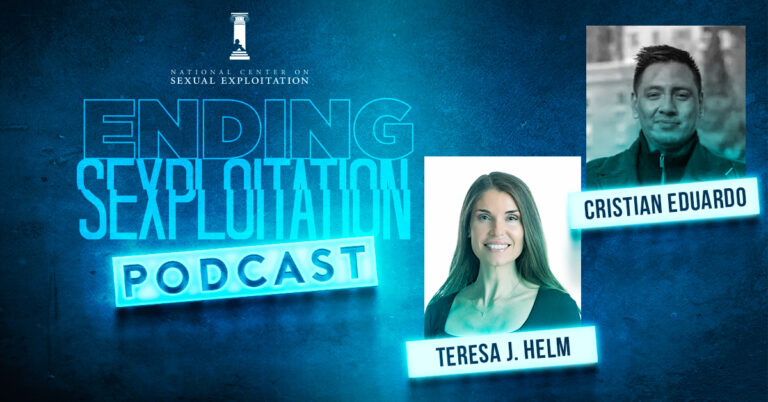The full “decriminalization” model for prostitution only exists today in New Zealand. According to British abolitionist, journalist, and author Julie Bindel, “It is the Wild West. If you remove police intervention from pimping, brothel owning, and trafficking, of course that’s what you get.” Bindel joined NCOSE Vice President Lisa Thompson this week to discuss why the full decriminalization model is so very harmful to prostituted persons.
With full decriminalization, Bindel explained, “you have brothel owners who are every bit as abusive now that they’re called managers as when they were called pimps, and the form that you have to fill in to acquire a license for a brothel in New Zealand is exactly half the length, at three pages, as the form we have to fill in in my country to adopt a stray dog or cat.”
The Wild West of Decriminalization
For her new book, The Pimping of Prostitution: Abolishing the Sex Work Myth, Bindel acquired hundreds of freedom of information requests on all of the local authorities in all of the towns and cities across New Zealand that have brothels. She wanted to know how many brothel inspections there have been, because they’re supposed to be mandatory regular inspections. Between the time full decriminalization came into effect in 2003 and 2014, Bindel found, only 11 brothel inspections had taken place. Those that did occur were because of complaints from the public.
The Harms of Decriminalization
Under the New Zealand/decriminalization model, you have more women entering the sex trade and more people buying sex. As a result, you see more cases of HIV, rather than fewer, as the government had argued. Moreover, since supply and demand both grow under this model, trafficking of women increases, which Bindel says has happened in New Zealand.
In New Zealand, proponents of decriminalization argue it breaks the link between organized crime and the sex trade because the brothel owners have to be vetted. But of course, there is a way around that, Bindel explained. Small Owner Operated Brothels, or SOOBs, in which up to four prostituted persons can work, do not require a license. Some brothel owners own ten or more of these. They’re not inspected and are not subject to any regulation. “For every licensed brothel,” Bindel adds, “there are scores of SOOBs.”


